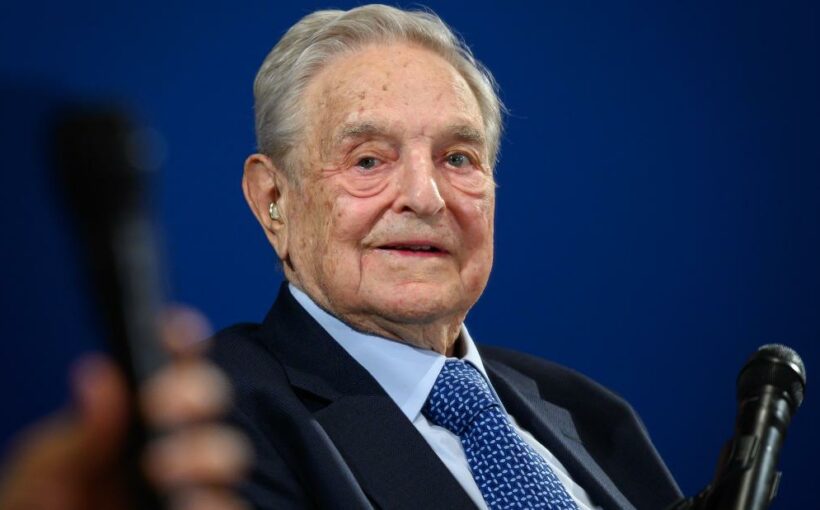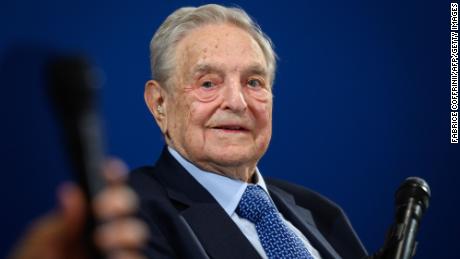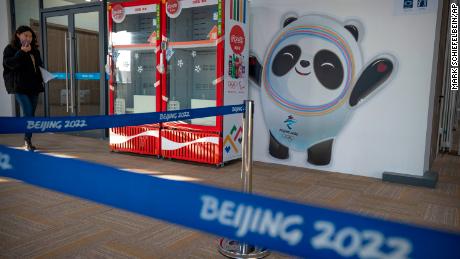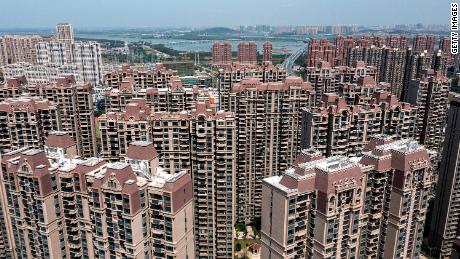London (CNN Business)China is facing an economic crisis after a real estate boom ended with a bang last year, according to investor George Soros.
The billionaire said in a speech at Stanford University’s Hoover Institution Monday that President Xi Jinping may not be able to restore confidence in the troubled industry, which has been hit by a series of defaults by developers and falling prices for land and apartments.
China’s real estate boom was based on an “unsustainable” model that benefited local governments and encouraged people to invest the bulk of their savings in property, Soros said.
Government policies designed to curb the boom made it difficult for indebted real estate behemoth Evergrande to pay its debts, he added.
The developer is reeling under more than $300 billion of total liabilities, including about $19 billion in offshore bonds held by international asset managers and private banks on behalf of their clients. Evergrande has been scrambling for months to raise cash to repay lenders.
Government officials have been sent into the company to oversee a restructuring, but there’s little clarity about what comes next. Evergrande has appealed for more time, but some lenders appear unwilling to wait. On Sunday, the company said that receivers had been appointed over a plot of land in Hong Kong, which it pledged as collateral against a $520 million loan last year.
“It remains to be seen how the authorities will handle the crisis,” Soros said, during a panel discussion about developments in China and how the United States should respond. “They may have postponed dealing with it for too long, because people’s confidence has now been shaken.”
Soros has in recent years emerged as a prominent critic of Xi and China’s ruling Communist Party. The legendary investor and chair of the Open Society Foundations said in September that asset manager BlackRock was making a “tragic mistake” by doing more business in China. He has criticized Beijing over its surveillance policies and a crackdown on private business.
The Chinese president now faces risks from the property market, according to Soros, who was speaking just days before the start of the Winter Olympics in Beijing.
Falling prices will “turn many of those who invested the bulk of their savings in real estate against Xi Jinping,” Soros said, adding that the current situation “doesn’t look promising.”
“Xi Jinping has many tools available to reestablish confidence — the question is whether he will use them properly,” said Soros.
Analysts have been long been concerned that Evergrande’s collapse could trigger wider risks for China’s property market, hurting homeowners and the broader financial system. Real estate and related industries account for as much as 30% of the country’s GDP.
China’s economy expanded 8.1% last year, far exceeding the government’s own targets. But weakening growth in the closing months of 2021 suggests the real estate crisis, renewed Covid outbreaks and Beijing’s strict approach to controlling the virus are taking a toll.
The International Monetary Fund expects economic growth to slow dramatically to 4.8% in 2022.
Source: Read Full Article



